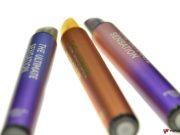In line with arguments by several other tobacco harm reduction advocates, the publication highlights said these anti-vaping “civil society observers” have been allowed to participate in the World Health Organization Framework Convention on Tobacco Control Conference of the Parties 9 (FCTC COP 9).
The APPG warned about the participation of The Union, a group funded by Bloomberg Philanthropies, as well as other anti-vaping non-government organizations in the upcoming FCTC COP 9 meeting taking place in November. The report says that sadly the WHO continues to attempt to discredit UK’s science and policy approach to address the smoking problem, despite the data indicating its success.
“The majority of NGOs listed as ‘Observers’ are hostile to the concept of tobacco harm reduction and thus the UK’s policy approach. For instance, ‘The Union’ has advocated a complete ban on e-cigarettes and heated tobacco products in low and middle-income countries, which are home to 80 percent of the world’s smokers,” the APPG said in the report.
The WHO keeps ignoring the science in favour of vaping
Sadly, amongst tobacco harm reduction experts, the WHO has become renowned for becoming aggressively anti-vaping, despite all the scientific data available in favour of e-cigarette use for smoking cessation. CAPHRA Executive Coordinator and AVCA (Aotearoa Vapers Community Advocacy) director Nancy Loucas, has previously highlighted that the health agency’s position against e-cigarettes has been influenced and compromised by vested interests that provide funds to the organisation, as in this case.
“This vested interest has coloured the information in order to serve the political and financial interests of Bloomberg Philanthropies and the Gates Foundation who provide nearly half of all the funding for the WHO-FCTC. The WHO is lying to you to protect their own financial interests and keep their private donors happy. They are not objective. They are not focused on their own mandate under FCTC to promote the health of the people and their right to have information to make informed choices regarding their health,” said Loucas.
Out of touch with the latest science on vaping
Similarly in a recent media release, the UK Vaping Industry Association (UKVIA), said that sadly, the health agency is out of touch with growing evidence on the public health potential of vaping. “Recent recommendations made by the WHO study group on Tobacco Product Regulations would prohibit electronic nicotine and non-nicotine delivery systems where the user can control device features and liquid ingredients.”













I smoked for nearly all of my adult life, smoking over a pack and a half a day. I had a persistent cough right up until 2015, when I switched to vaping. I don’t have the problem anymore. Everything I owned reeked of tobacco, and I didn’t like to smoke in the house, unless I was in my office with the door closed. I found out about vaping from a friend, who also quit smoking using vaping. I was interested, and I immediately sent for a vape pen. I couldn’t believe what happened next. I started coughing up black tar, which lasted for weeks. Once my lungs were clear, I had no breathing problems anymore! I started with 24 mg of nicotine, and that’s what I needed to curb my cravings. I didn’t stay on 24 mg more than a month. I moved to 12 mg, and now I’m at 6 mg, getting ready for 3 mg! That is amazing!